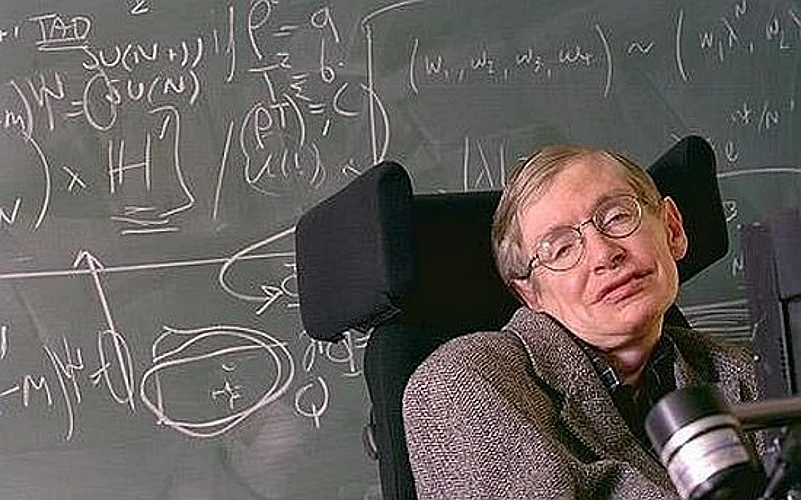British scientist known for his phenomenal work with black holes and relativity, Stephen Hawking on Wednesday dies at the age of 76, announced a family spokesman.
In a statement his children said: "He was a great scientist... whose work and legacy will live on for many years.
"We are deeply saddened that our beloved father passed away today. His courage and persistence with his brilliance and humour inspired people across the world.
"He once said, 'It would not be much of a universe if it wasn't home to the people you love.'
"We will miss him forever," said the family in a statement.
Advertisement
They asked for privacy but added their thanks to "everyone who has been by Professor Hawking's side and supported him - throughout his life".
The world famous physicist and cosmologist was the subject of the 2014 film The Theory Of Everything, which starred Eddie Redmayne and Felicity Jones.
Hawking's first major breakthrough came in 1970, when he and Roger Penrose applied the mathematics of black holes to the entire universe and showed that a singularity, a region of infinite curvature in spacetime, lay in our distant past: the point from which came the big bang.
Hawking's seminal contributions continued through the 1980s. The theory of cosmic inflation holds that the fledgling universe went through a period of terrific expansion. In 1982, Hawking was among the first to show how quantum fluctuations – tiny variations in the distribution of matter – might give rise through inflation to the spread of galaxies in the universe.
Advertisement
But it was A Brief History of Time that rocketed Hawking to stardom. Published for the first time in 1988, the title made the Guinness Book of Records after it stayed on the Sunday Times bestsellers list for an unprecedented 237 weeks. It sold 10 million copies and was translated into 40 different languages.
"Hawking was diagnosed with motor neurone disease at the age of 21. Doctors expected him to live for only two more years. But Hawking had a form of the disease that progressed more slowly than usual. He survived for more than half a century and long enough for his disability to define him," reported Guardian.
"He began to use crutches in the 1960s, but long fought the use of a wheelchair. When he finally relented, he became notorious for his wild driving along the streets of Cambridge, not to mention the intentional running over of students’ toes and the occasional spin on the dance floor at college parties."
Once asked how he felt about being labelled the world's smartest person, Hawking dismissed it as mere media hype. "They just want a hero, and I fill the role model of a disabled genius. At least I am disabled, but I am no genius."
Hawking won the Albert Einstein Award, the Wolf Prize, the Copley Medal, and the Fundamental Physics Prize. The Nobel prize, however, eluded him.
Advertisement
With Agency Inputs



















